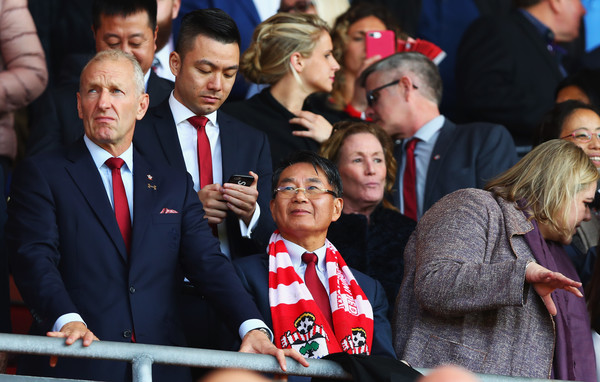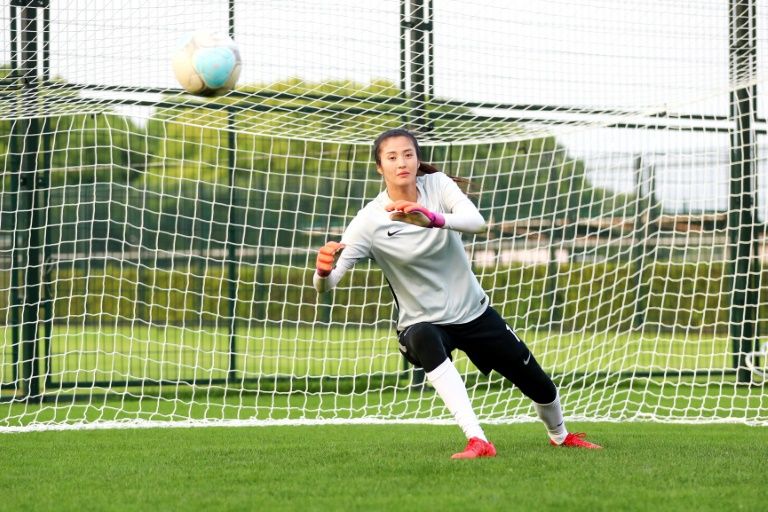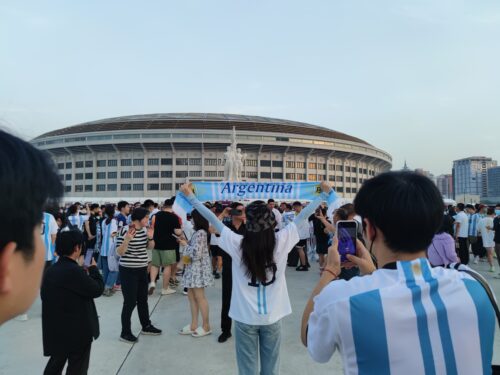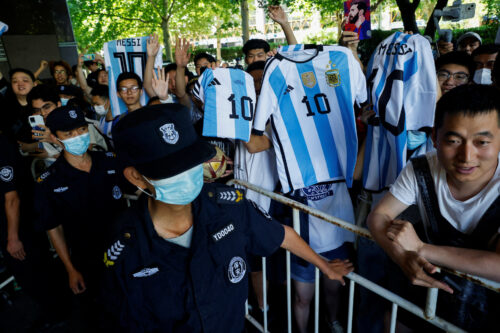China’s Olympic hockey dreams shaken after ‘shoddy,’ ‘embarrassing’ national tournament
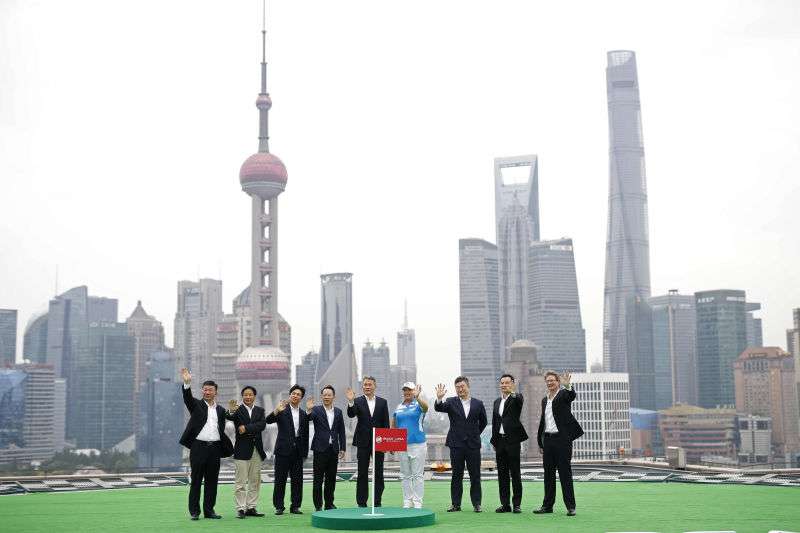
The China Sports Column is a The China Project weekly feature in which China Sports Insider Mark Dreyer looks at the week that was in the China sports world.
China’s Olympic ice hockey project just shifted up a gear, with news that the International Ice Hockey Federation (IIHF) unanimously voted to allow both the Chinese men’s and women’s teams to automatically qualify for the 2022 Olympic tournament as hosts. But while this is obviously good news for China, it’s important to provide some context.
The South Korean men’s team also qualified automatically as hosts into the 12-team tournament in Pyeongchang this year and were ranked 21st in the world going into the tournament. However, after three straight losses in the group stage in which they scored just one goal and conceded 14, they crashed out following another one-sided defeat in the playoffs qualification round.
Meanwhile, the women’s team drew a huge amount of coverage for joining up with their northern counterparts to form a unified team — a decision that may yet prove premature given this week’s cancellation of talks between the two sides — but on the ice, they were even worse than the men. In an eight-team tournament, Korea scored one goal and leaked 20 in three games.
In other words, automatic qualification could be more of a curse than a blessing.
China — today — is worse than Korea. In the women’s rankings, China stands at No. 20 in the world, four places below Korea. The Korean men, meanwhile, have climbed up to the 18th spot, while China languishes down in 33rd.
It’s been made crystal clear to everyone in China’s ice hockey scene that a repeat of the Korean performances would not be considered acceptable on any level. There has even been talk of the women winning gold. There’s still time to show some dramatic improvement, of course, but right now, China would do well just to match Korea’s performance.
Meanwhile, a damning article this week — in state-run China Daily, no less — described a “shoddy” domestic national hockey tournament with “embarrassing events” that “exposed weaknesses in management and player development.” At the National Ice Hockey Championships, one team — consisting of converted roller skaters — lost by the staggering score of 60-0, while another lined up with just one sub on the bench — an additional goalie — while a typical side would have around 14 substitutes.
Less than four years out until Beijing 2022, those ambitious medal targets may have to be quickly recalibrated…
There have been mixed fortunes for Chinese owners of English soccer clubs this season. While Fosun-owned Wolves won automatic promotion to the Premier League — and may well be joined by Aston Villa, led by the animated Tony Xia, who face Fulham in the playoff final on May 27 — West Brom, purchased by Guangdong-based businessman Lai Guochuan two years ago, finished bottom of the Premier League after a wretched season. Elsewhere, Barnsley dropped out of the second-tier Championship, while Reading and Birmingham narrowly avoided the same result, and Northampton Town, who booted out their Chinese owners earlier this year over non-payment issues, fell down to the fourth tier of England’s football pyramid.
But perhaps the most interesting case has been Premier League side Southampton, who finished just one place above the relegation spots, after a season that began with optimism and expectation quickly turned sour.
Gao Jisheng 高继胜 — whose testimony to save his own skin led to the execution of two Hangzhou officials in 2011 — took control of the club in August last year. Not once has he spoken to local fans or media since. Interviews with embattled chairman Ralph Krueger — a German pro ice hockey player and formerly coach of the NHL’s Edmonton Oilers — have done nothing to quell the dissent, with Krueger’s evasive and defensive answers long on management speak but short on specifics.
Vague talk of overseas investment and Gao’s supposed interest in growing the sport in China has given fans just enough hope to think that new revenue streams from China might suddenly start pouring into the club, but, from a more objective perspective, the chance of relegation next season seems a lot more likely than a sudden change in fortunes.

Elsewhere this week, the LPGA — the premier women’s golf tour in the world — announced a new tournament for Shanghai, the Buick LPGA Shanghai, which will debut at the Qizhong Garden Golf Club later this year. It’s due to run for at least five years after securing backing from the SAIC-GM joint venture.
China’s Feng Shanshan 冯珊珊, who topped the world rankings earlier this year, was the obvious choice to promote the tournament at Thursday’s launch event, with organizers choosing the classic Shanghai skyline as the backdrop for photos. But did it not occur to anyone that putting eight male officials either side of Feng might not create the best optics for a ladies golf tournament?
While there’s been no official announcement from either side, this new tournament brings another embarrassing chapter to an end after the proposed Alisports LPGA event — slated to be a fixture on the LPGA calendar for at least 10 years — was scrapped just weeks before the inaugural edition last year because organizers failed to get the proper operating license. Alisports had previously said they were still in talks with the LPGA, but this effectively ends any hope of that. Buick and organizers IMG have a somewhat longer history than Alisports in running international golf tournaments, so this time you can expect to see Feng on the first tee come October 18.
Also this week:
- She’s gloving it: The Chinese goalkeeper who rejected the catwalk for the soccer pitch.
- The most famous female athletes in China — but largely unknown elsewhere.
- Stephon Marbury turns to coaching the next generation of Chinese ballers after recently hanging up his Starburys.
- Sprout God, Porcelain Mamba, Six-Step LeBron: a list of China’s best NBA nicknames that went viral this week.
The China Sports Column runs every Friday on The China Project. Follow Mark Dreyer @DreyerChina
